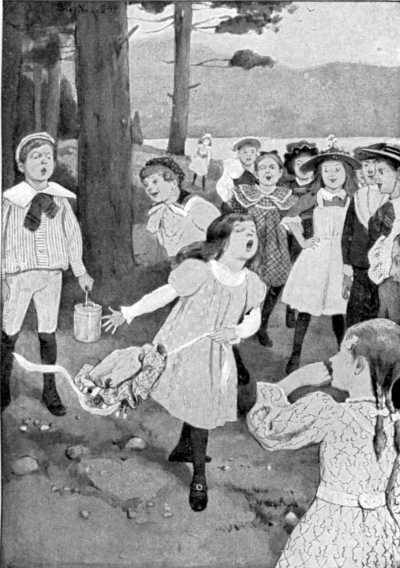Stephen Crane’s Whilomville Stories were written in haste and provided ready money. Maggie, A Girl of the Streets, written when he was twenty-three years old, lacks the polish of Crane’s future writing. Maggie was self-published and made no money. Curiously, these two works share characters of the same first name, Jimmie Johnson and Jimmy Trescott. Neither is up to the standard of The Red Badge of Courage or “The Bride Comes to Yellow Sky.”
Being boys, Johnson’s and Trescott’s lives are a constant rough-and-tumble swirl of bickering and brawling. The difference is that Johnson spends time on the gritty streets of lower Manhattan savagely fighting, while Trescott fights with the boy next door in the yard of his comfortable home on Main Street, Whilomville (really Port Jervis), New York. For Johnson, the street is as nasty a place as home, where brawling parents drink cheap beer and brutalize him. Trescott’s parents are genteel, and he resides in a single-family house in which his parents employ an African American stable hand and a gruff Irish cook, who makes salmon sandwiches. This last detail is important in the story “Shame” because that sandwich is Trescott’s lunch for a picnic. By contrast, Johnson’s life is no a picnic.
Had Johnson ever been invited to a picnic, he would attend it without consulting anyone and forget his lunch. Trescott is a boy of considerably less spunk needs permission and something to eat, so he plays the little boy and to blubbers to cook (she has no other name):
They’re goin’ to have a picnic.”
“Well, let them,” said the cook, blandly.
Jimmie fidgeted for a time in silence. At last he murmured, “I — now — I thought maybe you’d let me go.” Why he asks the cook and not his mother or father is a mystery. But the cook relents and with marvelous skill, she seizes a loaf of bread “and, wielding a knife, she cut from this loaf four slices, each of which was as big as a six-shilling novel. She profligately spread them with butter, and jabbing the point of her knife into the salmon-tin, she brought up bits of salmon, which she flung and flattened upon the bread. Then she crashed the pieces of bread together in pairs, much as one would clash cymbals. There was no doubt in her own mind but that she had created two sandwiches.”
The result is the best salmon sandwich for a picnic (ever in fiction), but for Jimmy it’s a disaster because she packs it in a workman’s lunch pail. It’s constant problem in childhood to be singled and ridiculed, and at the picnic, Jimmy’s genteel friends tease unmercifully tease him:
“Homer Phelps suddenly started, and looking hard, said, “What you got in the pail, Jim?”
Jimmie answered, somewhat uneasily, “Got m’ lunch in it.”
Instantly that brat of a Minnie Phelps simply tore down the sky with her shrieks of derision. “Got his lunch in it! In a pail!” She ran screaming to her mother. “Oh, mamma! Oh, mamma! Jimmie Trescott’s got his picnic in a pail!”
Now there was nothing in the nature of this fact to particularly move the others—notably the boys, who were not competent to care if he had brought his luncheon in a coal-bin; but such is the instinct of childish society that they all immediately moved away from him. In a moment he had been made a social leper. All old intimacies were flung into the lake, so to speak. They dared not compromise themselves. At safe distances the boys shouted, scornfully: “Huh! Got his picnic in a pail!” Never again during that picnic did the little girls speak of him as Jimmie Trescott. His name now was Him.”
Trescott’s shame is unbearable, and he stands dejected “hang-dog, kicking the gravel.” He never eats the sandwich, too, and when he brings it home, he stuffs it in under some blankets in the stable, where the hand Peter Washington finds it. Shamed again, Jimmy has finally come to the end of a bad day, a ruined picnic and a bruised ego.
Featured Image: Peter Newell. “‘Jimmy Trescott’s got his picnic in a pail!'” In Stephen Crane’s “Shame” from Whilomville Stories (1900)
See Peter Newell. “‘Jimmy Trescott’s got his picnic in a pail!'” Stephen Crane’s “Shame” from Whilomville Stories (1900) http://www.gutenberg.org/files/39644/39644-h/39644-h.htm#i102.

